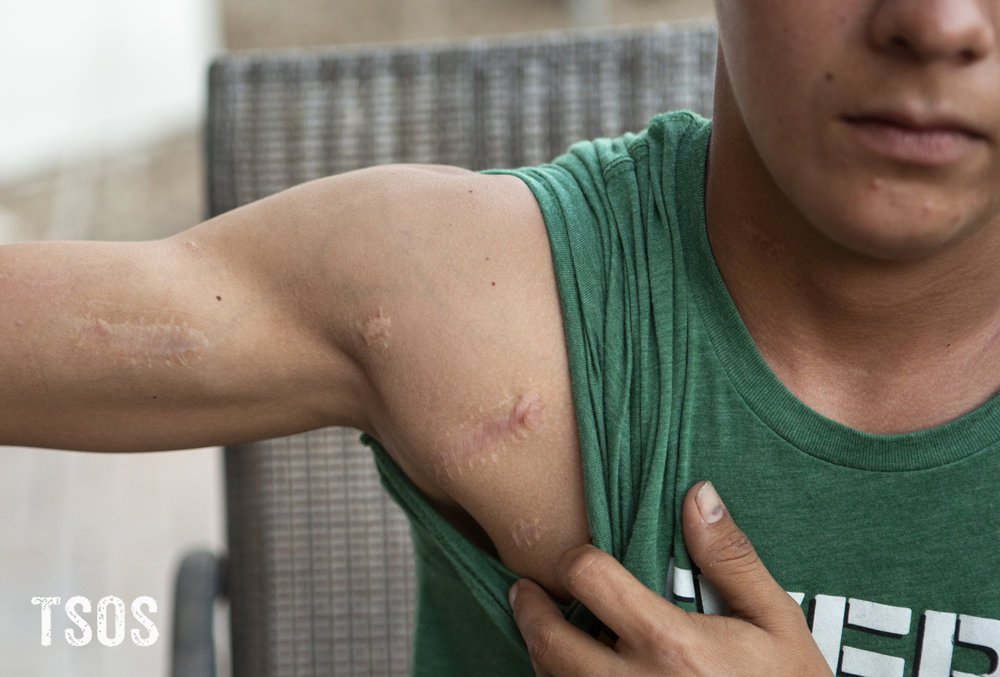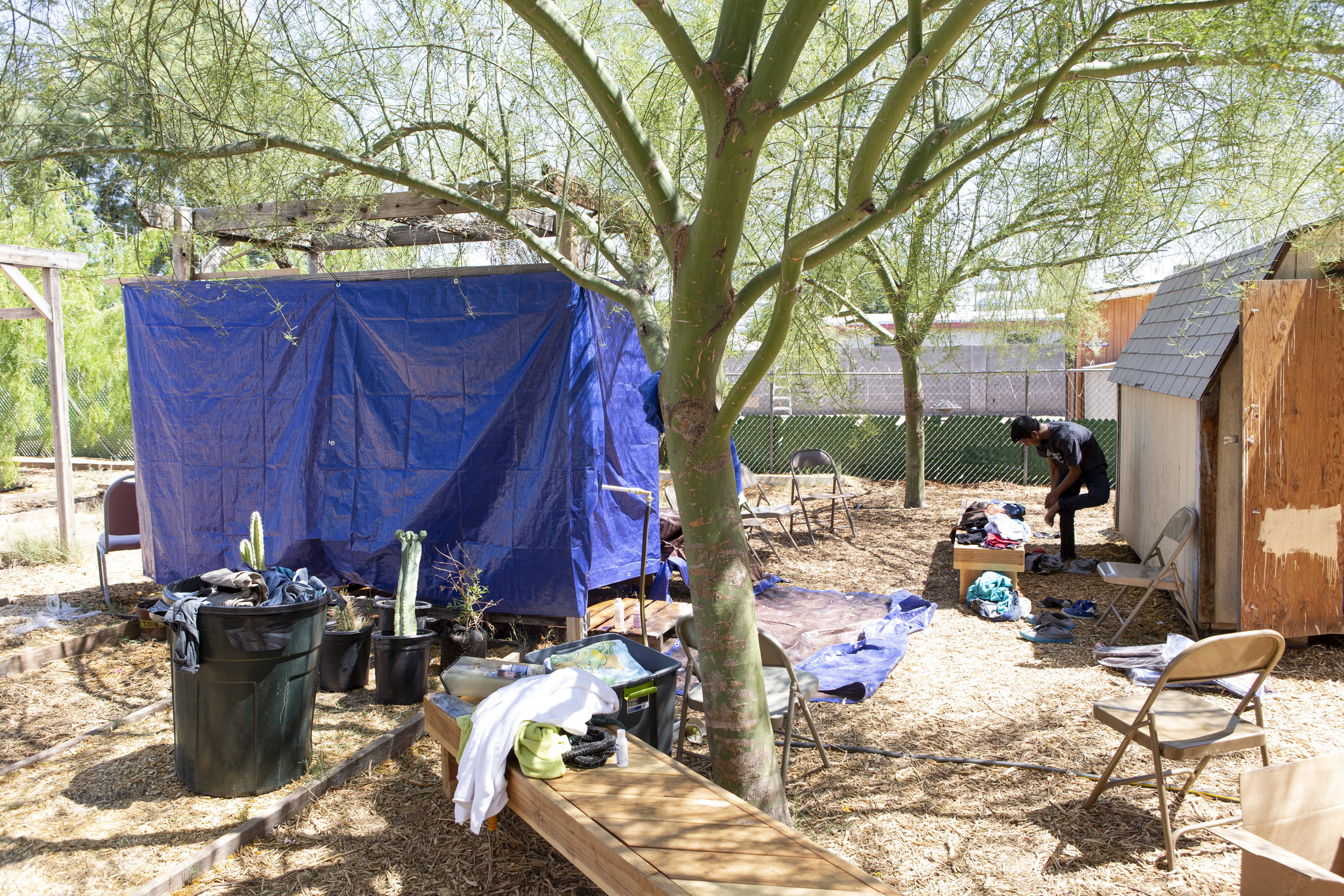by Brigid Rowlings, LHI Communications Director
Images from shelters on the southern border of the United States that LHI supports.
Refugees crossing the southern border of the United States has long been a prominent issue in the American media. It has gained more attention recently as the number of asylum seekers and refugees arriving in the United States has increased, and as officials grapple with repealing the Covid-era Title 42, which has allowed the U.S. government to quickly turn refugees back to prevent the spread of Covid 19.
While differences of opinion about immigration are real, and conversations about immigration vital, the facts remain: People are being forced to flee their homes. They come with very little. When they arrive, conditions for refugees on both sides of the border are harsh. Many of those hoping to enter the United States wait along the border in makeshift encampments with little access to food, water, and sanitation. Once refugees and asylum seekers arrive in the United States, border shelters and charitable organizations are able to offer some assistance, but the sheer number of arrivals puts a strain on their resources.
Why do refugees from countries like El Salvador, Guatemala, Honduras, Haiti, Nicaragua, and Venezuela risk such danger and hardship? The answer can only be that conditions in their home countries are so bad that anything else seems better.
What is compelling people to leave their home countries? We could write extensive pieces on countries like El Salvador, Guatemala, Honduras, Haiti, and Nicaragua. And, in fact we did publish an entire blog post on the factors pushing people to leave Venezuela. But, to give you an overview of the major issues, we will confine ourselves to outlining the major issues and providing you with just a few specific examples.
Political Instability and Oppressive Regimes
Many people seeking asylum in the United States are fleeing oppressive governments. For example, since 2007, Nicaraguan president Daniel Ortega has ruled the country with an increasingly authoritarian hand. Freedoms of individual people and the press have become more and more limited, and Ortega has even jailed his political opponents.
As we detailed in an earlier blog post, Venezuela president Nicolas Maduro ensured his own re-election by barring opponents from running. Since then, Venezuelans report continued persecution of those who oppose Maduro, including protestors.
The political situation is arguably worse in Haiti. The 2021 assassination of President Jovenel Moïse created a power vacuum that has paved the way for gangs.
Eduardo shows some of the scars that remain after he was attacked by local gang members with machetes for not agreeing to sell drugs through his family’s fruit stand in Honduras. Photo provided by Their Story is Our Story.
Gang Violence
In the absence of any strong central government in Haiti, around 200 gangs have established influence across Haiti, including controlling an estimated 60% of Haiti’s capital, Port-au-Prince. These gangs have committed acts of physical and sexual violence. They have forced people out of their homes and blocked access to safe drinking water, food and health care.
Gang violence is also endemic in places like El Salvador and Honduras. In 2019, in partnership with Their Story Is Our Story, we told you about Eduardo, who was attacked by gang members after he refused to sell drugs from his family’s fruit stand in Honduras. Fleeing often seems like the only option for people like Eduardo who are threatened, attacked, and even killed if they refuse to pay, join, or do the bidding of local gangs.
Economic Instability
Unsurprisingly, in places where governments are not stable, neither are economies. In Nicaragua and Venezuela, inflation, declining wages, and rampant unemployment have left people unable to support themselves and their families. Essentials like food, clothing, and medication are often in short supply.
An estimated 60% of Guatemalans live in poverty. This is partly due to a decade of “land grabs”. Small farmers in Guatemala have been driven off their land by more powerful people who want to develop their land into larger, industrial farms. Indigenous Mayan people living in the Guatemalan highlands have been particularly susceptible to these government-sanctioned “land grabs”. When targeted communities protest the seizure of their ancestral lands, leaders can be arrested or assassinated.
Natural Disasters
Farmers in Guatemala have not only suffered from land grabs, but also from droughts, floods, hurricanes and cold snaps. Guatemala is not alone. According to this Washington Post article, Latin America and the Caribbean experienced 175 natural disasters between 2020 and 2022. These events have led to loss of life, damage to housing and infrastructure, crop damage and food shortages, and lack of access to clean water.
Pallets of aid on their way from the LHI Aid Warehouse in Utah to Team Brownsville in Texas.
How LHI Helps
LHI works in partnership with several shelters in places like Texas and Arizona to provide aid to refugees and asylum seekers. One partner, Team Brownsville, told us in December: “We are receiving up to 600 people every day and the need is so great…Our greatest need is for blankets,warm clothing and shoes. We quickly and gratefully gave out all the jackets, hoodies, winter kits, socks, underwear and shoes that you sent. We tried to hold back some for when it got even colder, but as the numbers grew, that became impossible.” Thanks to our donors and volunteers at the LHI Aid Warehouse in Utah, we were able to send more aid to Team Brownsville.
To learn more about LHI’s Border Aid program, click here.









